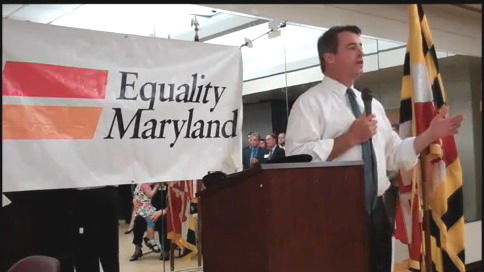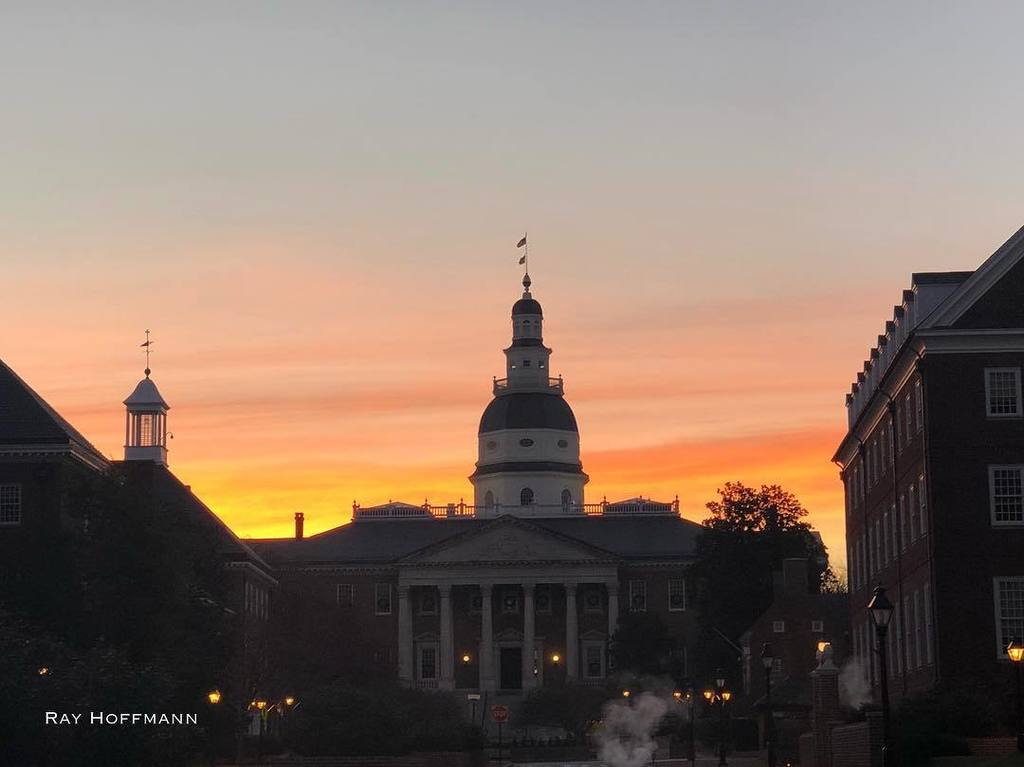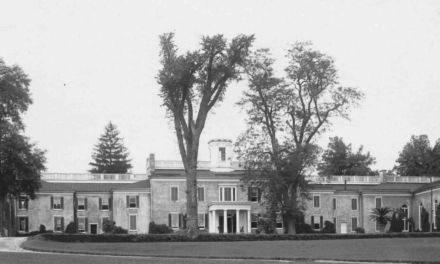@BryanRenbaum
bryan@marylandreporter.com
Former Maryland Attorney General Doug Gansler said neither former Gov. Martin O’Malley, a Democrat, nor Gov. Larry Hogan, a Republican, deserve credit for the state being ranked among the most LGBTQ-friendly jurisdictions in the United States in a recent report.
“I don’t think any governor deserves credit for being pro-LGBT or anti-, because I think it’s really the people that live in the state that deserve the credit…attitudes have shifted over time and I think that’s the biggest factor.”
The report was produced by the Human Rights Campaign (HRC) Federation Institute and was released on Thursday. It is the organization’s sixth annual report on the subject. It said Maryland has some of the strongest laws in the nation protecting the rights of LGBTQ Americans.
Gansler, a Democrat, served as Maryland’s attorney general from January 2007-January 2015. In 2010, he issued a 53-page legal opinion in which he said Maryland would recognize same-sex marriages performed in other states. At the time those marriages were not yet recognized under Maryland law. Gansler reiterated that politicians are not responsible for social progress.
“Neither Governor O’Malley nor Governor Hogan are certainly against marriage equality…but it’s certainly the people of Maryland that deserve, in my view, the credit for that.”
Gansler said he was surprised it took Maryland so long to reach the top-tier in the report.
“We were in the have-nots and now we’re in the haves. I’m just surprised that we were not always there, based on the attitudes and my own personal experience.”
But Richard Vatz, a professor of political persuasion at Towson University, said Hogan deserves some of the credit.
“For whatever it’s worth, I believe that Gov. Hogan is the first reasonable, not gratuitously provocative, major political figure in Maryland since Gov. [Robert] Ehrlich.
“In this case he has not opposed protections for the LGBTQ community, and he has, for example, allowed to become law without his signature a requirement that fertility treatments be offered by insurers irrespective of sexual orientation. That is doing what’s right without conspicuously exploiting an issue for political expediency.”
Vatz said that he believes Maryland is gay-friendly and should be but that the report contains some flaws.
“The HRC study, like those of all interest groups, begs questions and skews evidence to support its agenda and spin. It argues that the HRC is “…assessing how well states are protecting LGBTQ people from discrimination,” but it is really reporting on how well states comport to the organization’s prioritizing the interests of that population. They claim that without aggressive action that “…people remain at risk of being fired, evicted or denied services because of who they are,” but they provide no evidence that this is generally occurring.
“The study purports to show, but lacks evidence, that LGBTQ people are singularly discriminated against simply for who they are. There is a reference to South Dakota’s having passed a bill that bars teaching K-7 (roughly 6 years old through 13 years old students) regarding “gender identity or gender expression.” Why is that an inarguable position, supporting restrictions on teaching sexual matters beyond the ken of very young citizens?”
Former Gov. Parris Glendening, a Democrat, declined to comment on the politics of the report but said he is “pleased” by its findings.
Glendening said the issue of LGBTQ equality is personal to him. His late brother Bruce, who served three tours of duty in Vietnam as a member of the Air Force, was gay and succumbed to AIDS in 1992.
“He told me, the thing that bothered him more than anything else, was that he resigned from the air force because he knew that at that stage if his sexual orientation became known he would receive a dishonorable discharge.”
Glendening said the experience impacted his political views.
“The reality that he was living with that was almost as hard for me, and I’m sure it was for him, as the actual death. And, so, I thought in the back of my mind if I ever had the opportunity to change that…then I would.”
Mark Procopio, executive director with the LGBTQ advocacy organization Free State Justice, said the report does not tell the whole story.
“The State Equality Index and other rankings like it serve as snapshots. There is a lot more that we need to do as a state for LGBTQ Marylanders to have equal and equitable opportunities to thrive…
“We need to ensure that LGBTQ youth in the juvenile justice system have policies and protections in place, that protections for LGBTQ families are codified, that queer youth in the foster care system are protected and their caregivers are provided proper training, and that our schools are inclusive and safe places for LGBTQ youth. But beyond the issues stated on the index, there is no dearth of things our state can still take on.
“How will we stem the tide of violence towards transgender people, particularly women of color? How will our state respond to the dramatic increase in hate crimes against the LGBTQ community and other communities over the past three years? How will we react to the outsized challenge of LGBTQ homelessness? How will Maryland address the urgent issues of healthcare access and competency for the LGBTQ community and the transgender community in particular?”
The HRC report said Maryland, 16 other states and the District of Columbia are in the highest category: “Working Toward Innovative Equality.” The other states in that category are: Washington, Vermont, Rhode Island, Oregon, New York, New Mexico, New Jersey, Nevada, Minnesota, Massachusetts, Maine, Illinois, Delaware, Colorado, Connecticut and California.
Hawaii, Iowa and New Hampshire are ranked in the second-tier: “Solidifying Equality.” Utah and Wisconsin are ranked in the third-tier: “Building Equality.”
Wyoming, West Virginia, Virginia, Texas, Tennessee, South Dakota, South Carolina, Pennsylvania, Oklahoma, Ohio, North Dakota, North Carolina, Nebraska, Montana, Missouri, Mississippi, Michigan, Louisiana, Kentucky, Kansas, Indiana, Idaho, Georgia, Florida, Arkansas, Arizona, Alaska and Alabama are ranked in the bottom-tier: “High Priority to Achieve Basic Equality.”
The report based its findings on both the presence and absence of legislation that protects members of the LGBTQ community from discrimination. The criteria include: “religious refusal and relationship recognition laws, non-discrimination laws and policies, hate crime and criminal justice laws, youth-related laws and policies and health and safety laws and policies.”
Maryland passed legislation to legalize same-sex marriage in 2012 under O’Malley. The measure was approved by voters in a referendum before it was signed into law in 2013. More than two years later the U.S. Supreme Court invalidated state laws forbidding same-sex marriage.
Maryland has laws that forbid discrimination against members of the LGBTQ community in housing and employment. Those laws were passed under O’Malley. Hogan signed legislation in 2018 to make conversion therapy for youth illegal.
Last year the Democratic-controlled U.S. House of Representatives passed legislation to enshrine civil rights protections for members of the LGBTQ community. However, the measure is unlikely to see action in the Republican-controlled Senate.






Recent Comments